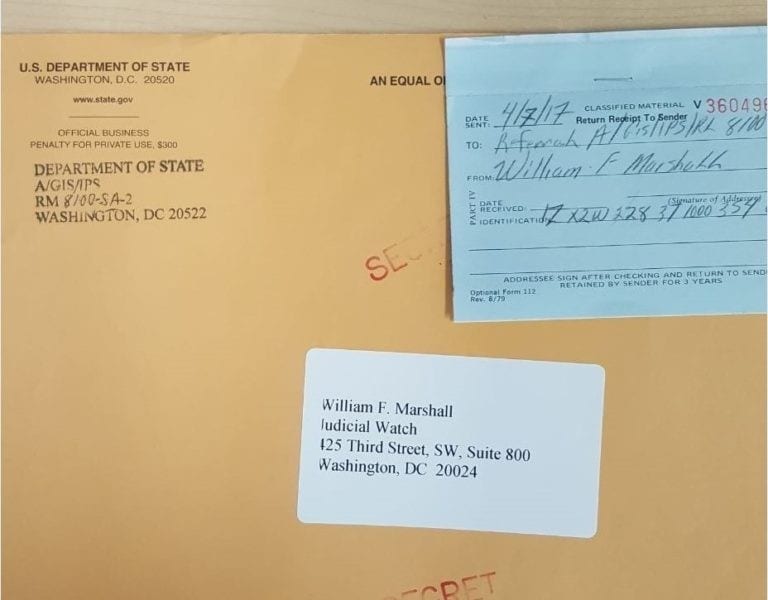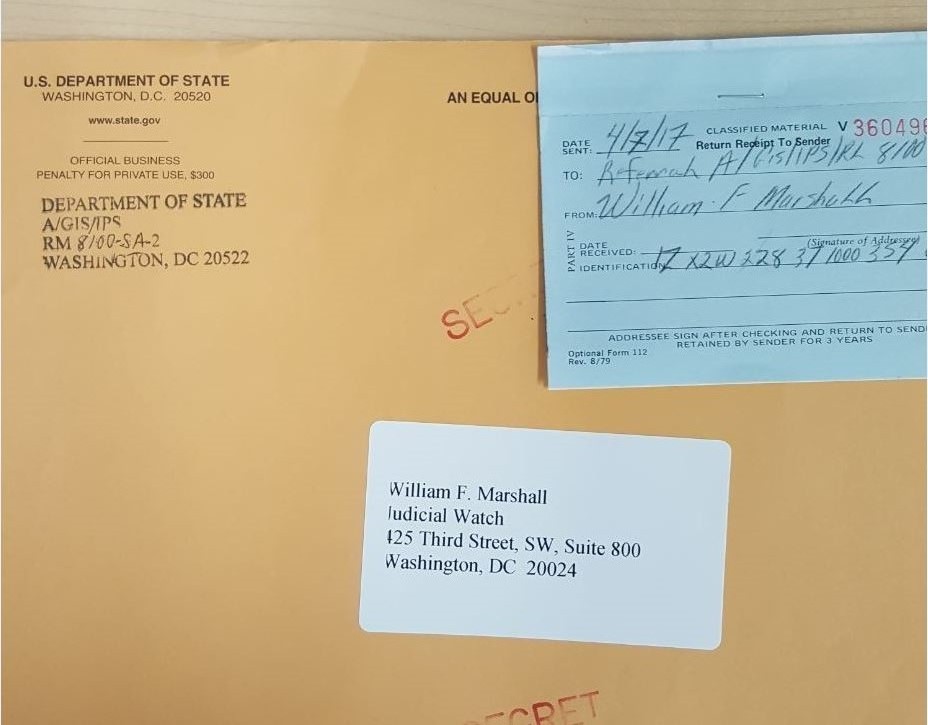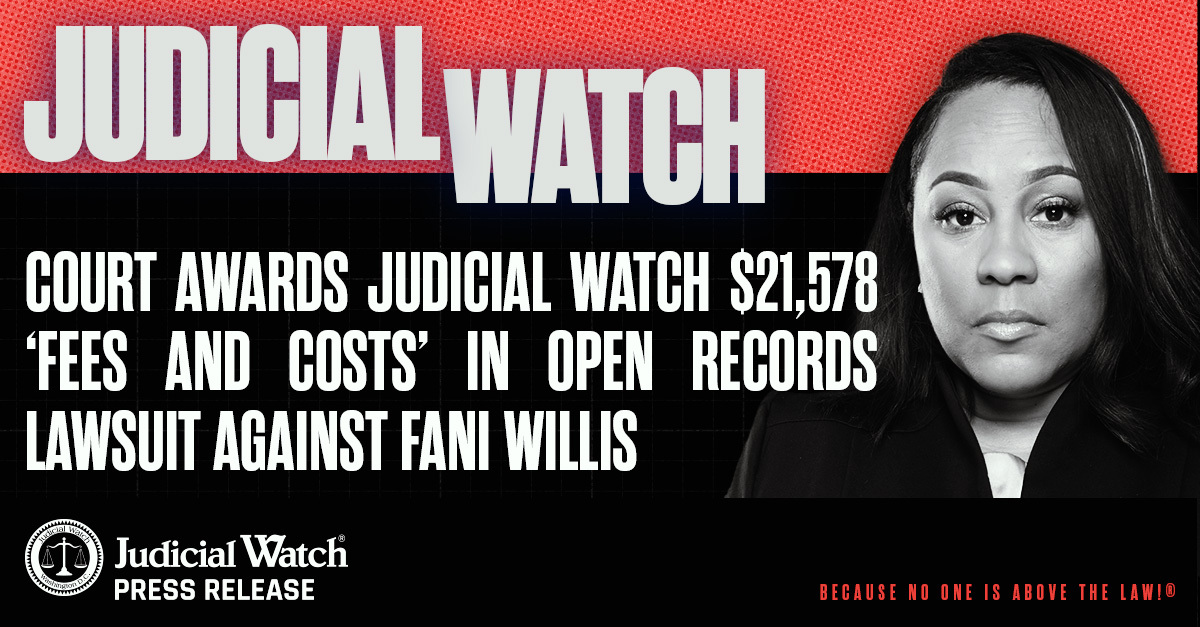

Oops! State Dept. Mistakenly Sends JW “SECRET” Files Intended for CDC


The government agency that allowed Hillary Clinton to traffic highly classified information on an unsecure, personal email server accidentally sent Judicial Watch “SECRET” documents that were supposed to go to the Centers for Disease Control and Prevention (CDC). The gaffe could have constituted a violation of laws regarding the passing of classified national security information to persons—in this case Judicial Watch—unauthorized to receive it. Then again, this particular agency, the State Department, is renowned for its inability to guard even the most sensitive of government secrets.


The mishap involves Judicial Watch’s investigation of the Obama administration’s handling of the Ebola crisis years ago. Back in 2014 Judicial Watch requested records under the Freedom of Information Act (FOIA) from the CDC for communications relating to possibly stopping air travel between the United States and certain West African countries impacted by the 2014 Ebola epidemic. Judicial Watch followed the Ebola drama closely and reported extensively on the Obama administration’s handling of the situation, including issuing a special Ebola amnesty for Africans and an outrageous plan to admit Ebola-infected non-U.S. citizens into the United States for treatment.
As part of the probe, a number of FOIA requests went out to the CDC which took an astounding 2 ½ years to process the records. This is a common tactic used by the government to stonewall and delay the disclosure of information it prefers to keep private. The pervasive violation of federal public records laws forces groups like Judicial Watch to initiate litigation to force the government to release documents crucial to the public interest. In this case, the CDC evidently corresponded with the State Department regarding Judicial Watch’s request. The agency apparently was supposed to copy documents onto a compact disc (CD) for review by State Department officials relating to the possible halting of U.S. commercial air travel between the United States and African countries impacted by Ebola.
The CD was labelled “SECRET” and shipped off to the State Department for review, a typical exchange of documents between government officials. Rather than mail back the reviewed disc files to the CDC, the State Department inadvertently sent the disc to Judicial Watch this month in a double-wrapped package labelled “SECRET” on the outside as well as the CD itself. The package arrived in a UPS overnight envelop to Judicial Watch’s Washington D.C. headquarters. The overnight envelope’s return address is the State Department. The package contained a cover letter from the CDC addressed to State Department FOIA officer Eric Stein. The letter indicated that the disc was supposed to contain documents relating to the possible halting of commercial air travel between the U.S. and African countries affected by Ebola. A copy of the original Judicial Watch FOIA request was included in the envelope with a sticky note attached that read, “CD is blank return to mail room.”
Indeed, the CD contained no actual files even though it was labelled “DOS Referral 15-00098,” the case number assigned by the CDC to Judicial Watch’s FOIA request. Evidently, the State Department intended to return it to the CDC so that the agency could send it back with the proper files to be reviewed. Instead, the State Department shipped it to Judicial Watch, illustrating the incompetence of the government bureaucracy. Not only did it take the CDC more than two years to process a simple FOIA request, it was unable to successfully copy documents onto a disc for review by State Department officials. The CDC then mislabeled the disc “SECRET” when in fact it contained no records at all. The State Department then mistakenly mailed the blank CD on to Judicial Watch, rather than the CDC in order to get the agency to resend the proper files. This further stalls the disclosure process.
Had the disc actually contained secret government documents, as it was labelled, the State Department would have been in violation of laws regarding the passing of classified national security information on to persons unauthorized to receive it. Of course, this is nothing compared to what the agency allowed the former secretary of state to do throughout her tenure.















